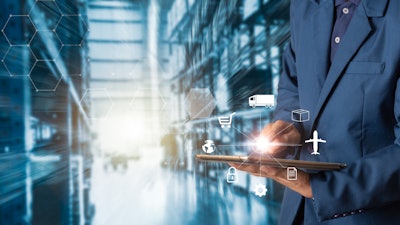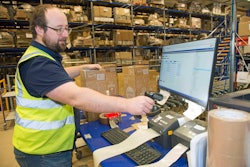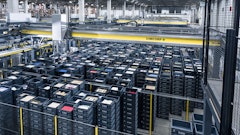
Logistics plays a major role in keeping the world economy moving. Although the logistics industry has witnessed major shifts due to the Coronavirus disease (COVID-19) crisis, it is anticipated that it will continue its trajectory after the pandemic. The e-commerce business plays a significant role in providing innovative solutions to freight customers to promote their economic development. According to Research Dive, e-commerce is the primary force of development in logistics.
Technology and agility are two of the most significant areas in helping the industry to progress. Here are some other top trends expected to make a notable impact on logistics in 2021 and beyond.
1. Robotics and automation
Robotics and other forms of automation have started to make a strong impact on logistics, with the persistent focus on optimization and demand for flexible and transparent supply chains to drive the shift for an automated future. There are many highly repetitive, labor-intensive tasks in logistics. Modern robotics will help increase efficiency and productivity.
The precision and speed of warehouse robots are in high demand even though it comes at a high cost. It is estimated that robots will transform human jobs, and although automation is likely to reduce the need for humans who perform basic logistics tasks, it will generate new types of jobs where the warehouse workers can fill in.
2. Data-driven transformation
Access to data connectivity and the internet will expand further in the upcoming years, and areas without access to the internet will soon be a thing from the past. With increased, improved and more reliant connectivity, the Internet of Things (IoT) is likely to be adopted extensively in the field of logistics. At an initial stage, logistics companies may be worried about the total costs of implementation and security of IoT solutions. However, the benefits of new IoT applications ranging from increased efficiency, smart warehousing, real-time transport visibility and predictive delivery will overcome teething issues and thereby transform the logistics industry.
In order to realize the potential of IoT solutions, a logistics company should establish a system that can collect data, analyze it on its own and propose adjustments to the processes, which requires a smart system such as one built with artificial intelligence (AI). In the recent years, AI has swiftly moved to mainstream in the private market because programmers have found applications for AI technology in a series of smartphone apps. A program with AI technology has the potential to find patterns in large amounts of data, for example, giving direction to delivery vehicles according to the traffic or calculating when customers in a specific region may need new deliveries.
Thus, when IoT, automation, robotics and automation are combined with wireless technologies and new connectivity and if AI analytics is added to the mix, the future of logistics sector may look brighter and quite different from today.
3. Customer centricity
In today’s technologically connected world, apps, cloud computing and advanced GPS tracking make it possible to create a level of transparency in logistics that was inconceivable a few years ago.
A customer-centric business model increases flexibility in supply chain by making details about shipments available. Also, a customer-centric approach provides the logistics company with valuable insights into the needs of the customers. This enables higher efficiency as the customer-centric model is also a tool to develop the logistics companies’ internal workflow.
4. Sustainability
Its business critical to not to work on decreasing one’s carbon footprint. Various governments around the world are working on policies to control or restrict the production and sale of petrol and diesel in the upcoming future, which is forcing the logistics industry to rethink their assets and business models.
The United Nations (UN) has created 17 Sustainable Development Goals (SDGs) in collaboration with representatives from major international industries and organizations. The SDGs extended a lot of traction, and companies across the globe are implementing them as their business plans in some form.
Though sustainability is no new trend in the logistics sector, the demand for more sustainable solutions is expected to grow in the coming years, which could affect the face of the industry. Many companies are now implementing green logistics. There is a horde of technologies on the horizon that might help in minimizing carbon footprint, such as hybrid and electric vehicles and AI-powered systems. Moreover, the logistics container is anticipated to evolve in the near future, as the smart containerization formats are modularized and intelligent, which allows for more efficient space utilization.
Overall, the world is up for a highly transformative, swiftly growing and very exciting future. The logistics industry has undergone many changes over the years, and as technology continues to transform the world, its effect on logistics can only expand. This is expected to create a shift in how businesses deliver their goods to customers quickly and efficiently.




















